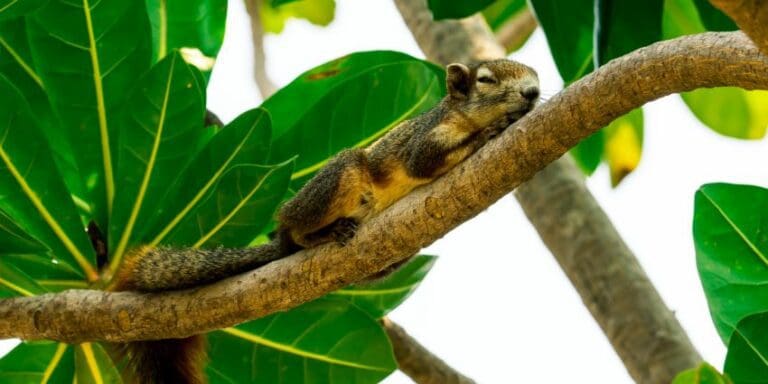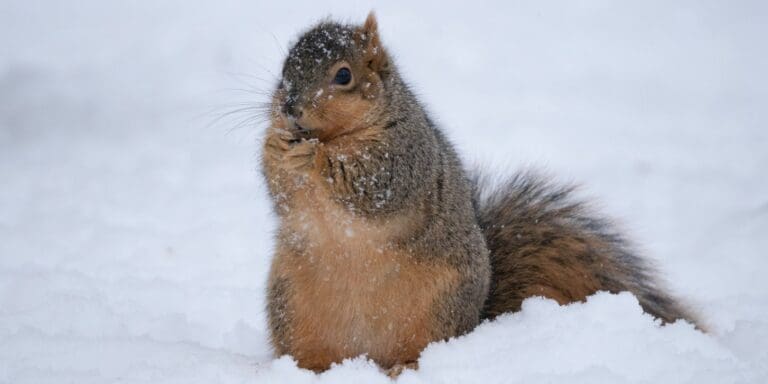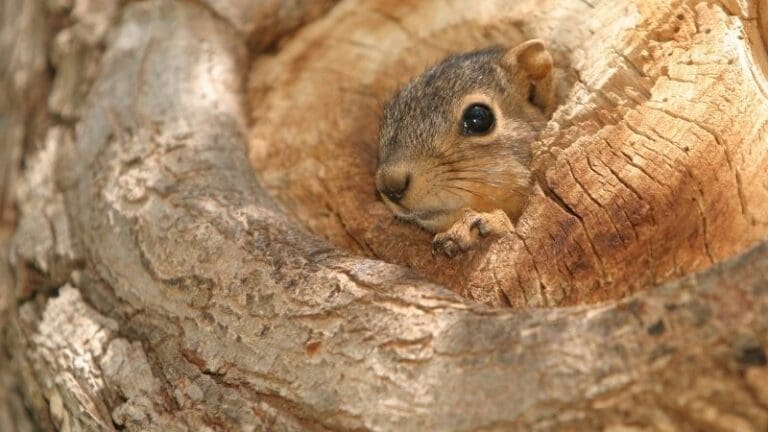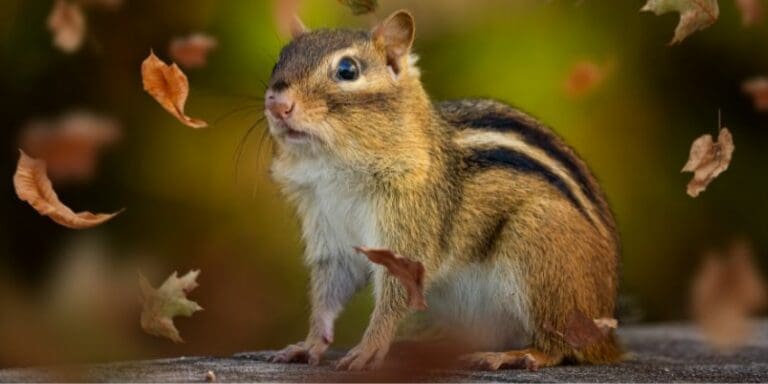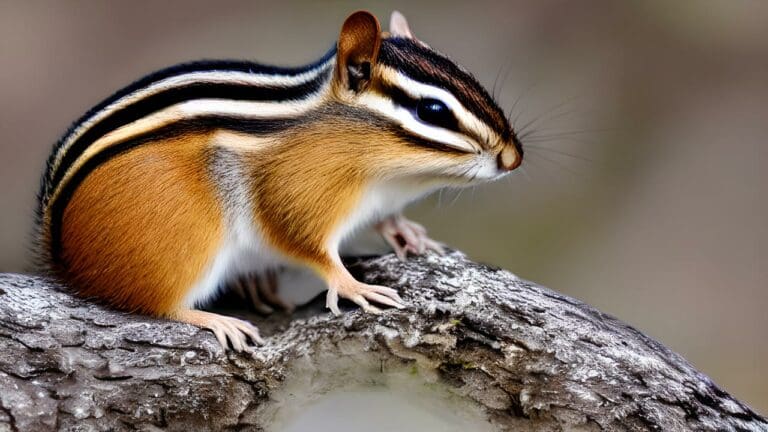Do Squirrels Play Dead? Startling Secrets Revealed
Have you ever stumbled upon a motionless squirrel and wondered, ‘do squirrels play dead?’ You’re not alone in your curiosity. These agile creatures, often seen darting up trees or foraging for nuts, have a myriad of fascinating behaviors that often go unnoticed. Dive into this article to unravel the mysteries of the squirrel world, from their unique defense mechanisms to the truth behind their seemingly lifeless poses.
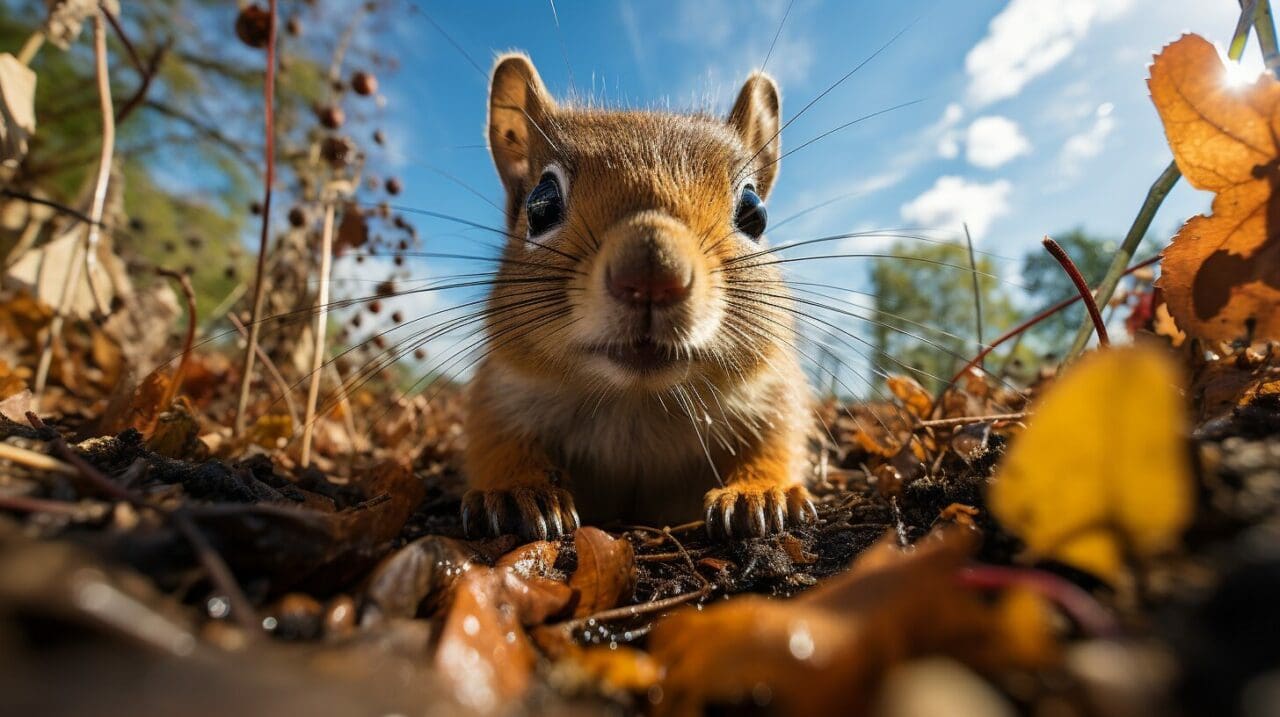
| Key Takeaway | Description |
|---|---|
| 1. Playing Dead vs. Motionless | While some animals play dead as a defense mechanism, squirrels often appear motionless when threatened, reducing their chances of being spotted. |
| 2. Reasons for Lying Flat | Squirrels lie flat for various reasons: camouflage, cooling down, sleeping, and occasionally while eating. |
| 3. Squirrel’s Natural Camouflage | Their fur, especially on their back, is designed to blend with their surroundings, making them harder to detect when they lie flat. |
| 4. Response to Threat | When threatened, a squirrel’s heart rate may increase and may freeze in place to avoid detection. |
| 5. Respecting Their Space | If you come across a squirrel that appears to be “playing dead” or lying flat, giving them space is essential as they might be in shock or trauma. |
Looking for a Rehabber? Here are 3 Resources
- Squirrel Rehab Locator Map – input your zip code or city into the search bar of Google Maps.
- Animal Help Now – licensed rehabber directory
- Squirrel Connections – licensed rehabber directory by state
The Art of Camouflage: How Squirrels Blend In
Camouflage is a squirrel’s best friend. Their fur, especially on their back and sides, is designed to blend seamlessly with their surroundings. Whether it’s the brown bark of a tree or the dull colors of the ground, a squirrel’s fur helps it remain undetected. This is especially useful when they’re foraging in your backyard or resting on a branch.
Why Do Squirrels Lie Flat on the Ground?
Have you ever had the chance to spot a squirrel lying flat on the ground? This behavior is not just a random act. When squirrels lie flat, blending with their surroundings is a strategy.
Their fur, especially on their back, is designed to camouflage with the tones of the earth, making it harder for predators to detect them. So, the next time you see a squirrel lying flat, know that it’s not just resting; it’s employing a survival tactic!
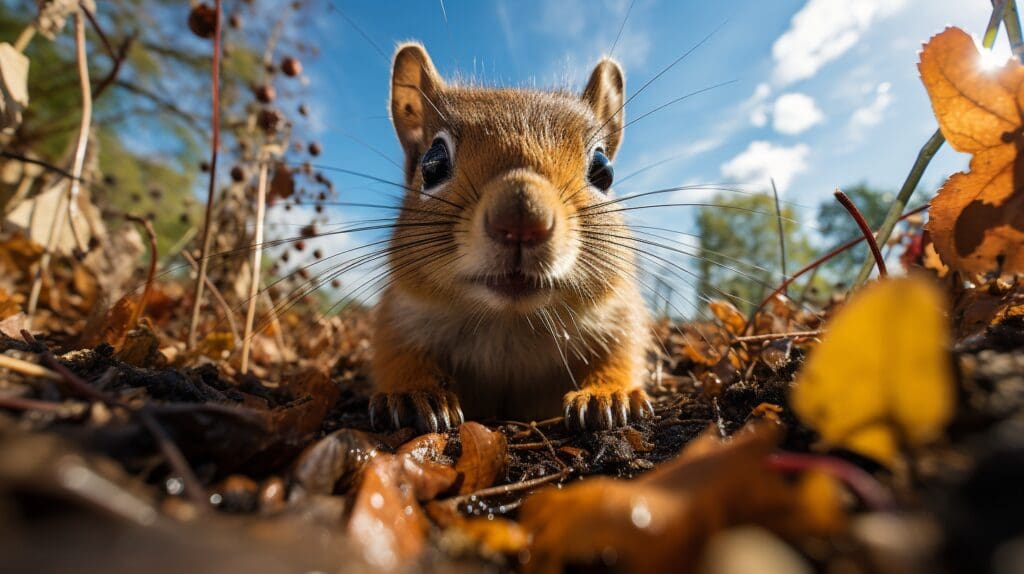
Reasons Squirrels Lie Flat on the Ground:
- Camouflage: As mentioned, lying flat helps them blend in with their surroundings.
- Cooling Down or Splooting: On hot days, squirrels might lie flat on cooler surfaces to regulate their body temperature.
- Sleeping: Sometimes, squirrels might take short naps while lying flat, especially if they feel safe in their environment.
- Eating: Squirrels often forage on the ground, searching for nuts, seeds, and other edibles. When they find a delicious morsel, they might sit up or lie flat to enjoy their meal.
Can I Touch a Squirrel That Is Lying Down?
It’s best not to touch or approach a squirrel, whether lying down or not. They are wild animals and can become aggressive if they feel threatened. Additionally, touching them can transfer diseases or parasites to humans.
Is Playing Dead a Squirrel’s Defense Mechanism?
While many animals, like the opossum, are known for playing dead to fool their predators, squirrels do not play dead similarly. However, they might appear motionless or rigid when they feel threatened.
This behavior is a mechanism to deter predators. By staying still, they reduce the chance of being spotted or attracting unwanted attention.
Subscribe to the Free VIP Squirrel Scoop Insider Magazine
Written by none other than Bart the Balcony Squirrel, this lighthearted take on life and current squirrel-related world events is sure to bring a smile to your face. From his perch on the Kitty City Squirrels balcony, Bart brings a unique and entertaining perspective to every issue. Why wait, Subscribe now!

Other Defense Mechanisms of Squirrels:
- Camouflage: As previously discussed, their fur helps them blend in.
- Agility: Their ability to dart quickly and climb trees helps them evade predators.
- Alertness: Sharp senses keep them aware of potential threats.
After exploring the intricacies of squirrel defense mechanisms, you might wonder how long these fascinating creatures live. Dive into our article, ‘How Long Do Squirrels Live? All You Need to Know?️,’ to satisfy your curiosity.
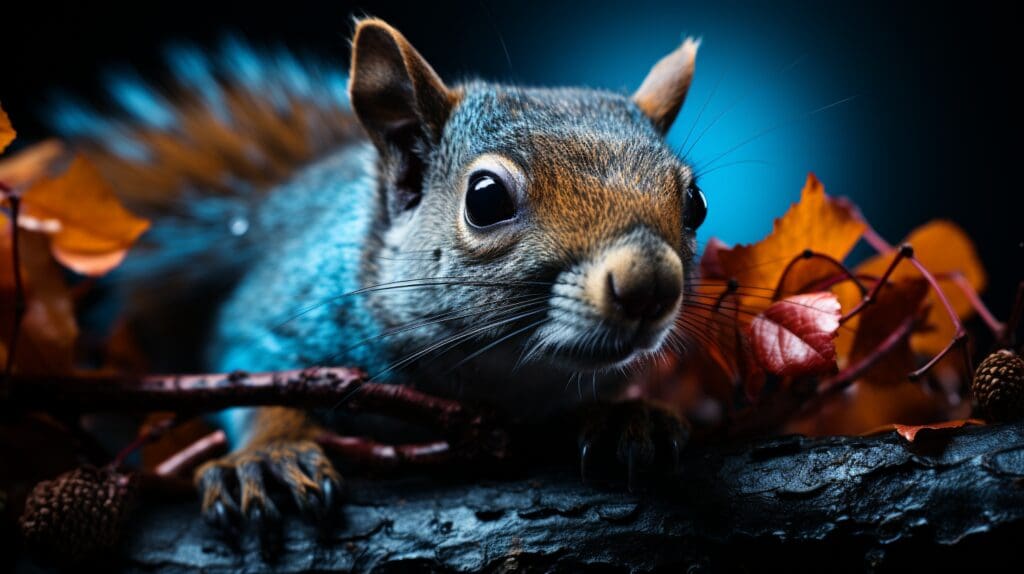
How Do You Know If a Squirrel is in Shock?
A squirrel in shock might appear motionless, rigid, or unresponsive. Its breathing might be shallow, and it may not react to stimuli.
If you come across a squirrel in this state, it’s best to give it space and avoid touching or moving it.
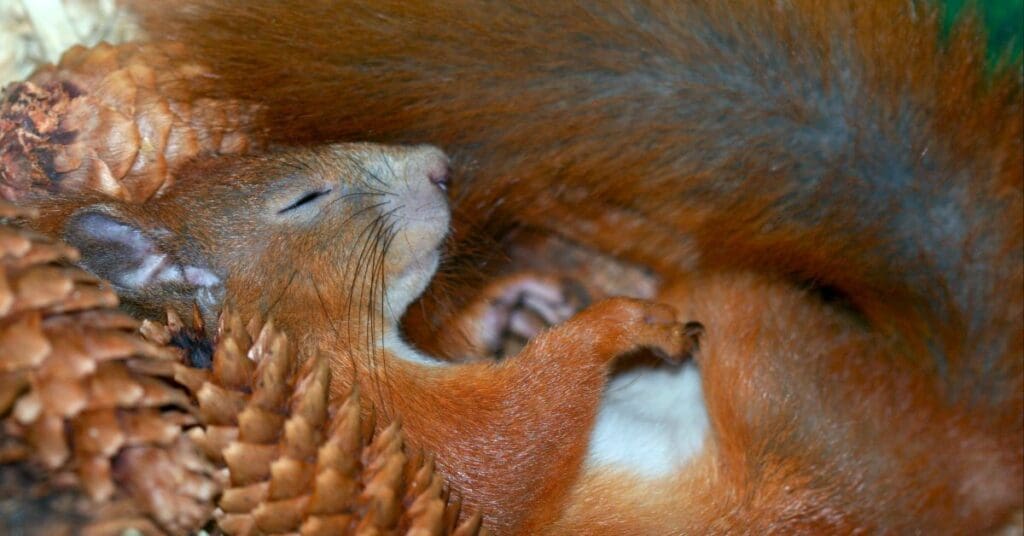
Check out our article, ‘Is That A Squirrel Nest in Your Backyard?’ to learn more about their habitats. And if you’re wondering what these nests look like, our ‘What Do Squirrel Nests Look Like? – ‘ The Ultimate Guide’ shows clear pictures of their nests.
How Do You Know If a Squirrel Is Dead?
A squirrel showing no signs of breathing, movement, or response to stimuli might be dead. However, it’s essential to approach cautiously, as it could also be in shock or playing dead.
Why Do Squirrels Play Dead?
Squirrels might appear to “play dead” as a defense mechanism. By appearing lifeless, they might deter certain predators from approaching or attacking.
Do Squirrels Hibernate or Just Lie Low?
There’s a common misconception that squirrels hibernate. While their activity may decrease during colder months, squirrels do not hibernate like other animals. Instead, they rely on their body fat reserves to keep them warm and reduce their foraging.
However, they might lie flat on the ground or in their nests to rest and conserve energy. So, while you might not see them darting from branch to branch, they’re still awake and alert, just laying low.
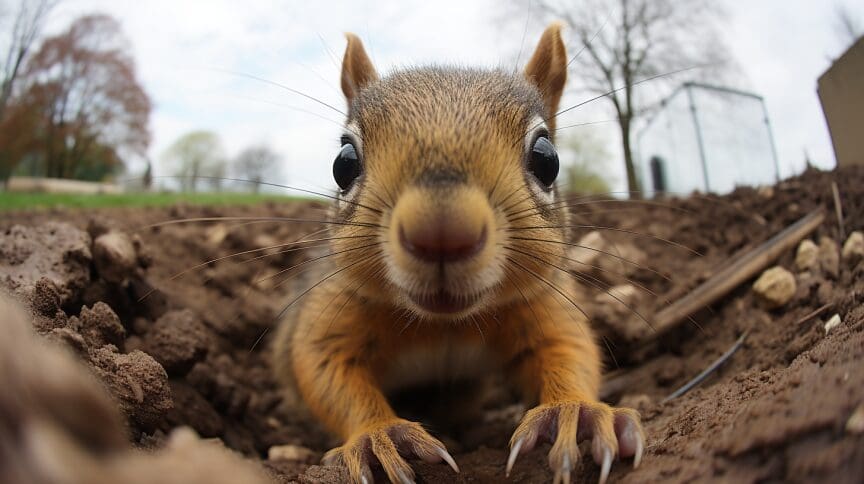
The Myth: Squirrels Don’t Hibernate
As mentioned earlier, squirrels do not hibernate. Their body temperature might drop slightly during colder months, but they remain active at a reduced pace. They rely on their body fat and occasional foraging to get them through the winter.
How Do Squirrels Deter Foxes and Cats?
Foxes and cats are agile predators that pose a significant threat to squirrels. To deter these predators, squirrels have developed several strategies.
They are incredibly agile and can dart quickly from one spot to another, making it difficult for predators to catch them. Moreover, their sharp senses alert them to any approaching threat, allowing them to react swiftly.
The Strategy Behind a Squirrel’s Behavior
Every behavior a squirrel exhibits, from lying flat on the ground to darting quickly up a tree, is a survival strategy. These mechanisms have evolved to ensure the squirrel remains one step ahead of its predators.
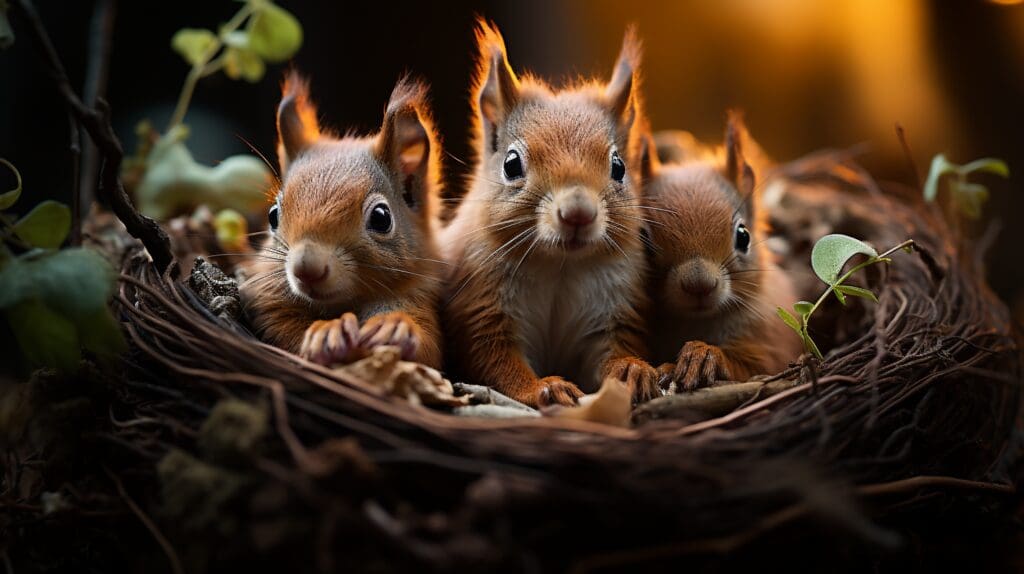
How Do Squirrels Feel When Threatened?
When squirrels feel threatened, their heart rate may increase and freeze in place. This is a natural response to avoid detection. If the threat continues, they’ll look for the quickest escape route, using their agility to their advantage.
Squirrels vs. Other Animals: Who’s the Best at Hiding?
While squirrels are masters of evasion, other wild animals also have unique mechanisms to hide from predators. However, the squirrel’s ability to blend, lie flat, and remain motionless gives it a distinct advantage in the animal kingdom.
Conclusion – Do Squirrels Play Dead?
“Do squirrels play dead?” Well, as we’ve seen, these clever critters have some cool tricks up their furry sleeves! Every time they blend in or stay super still, they’re just trying to stay safe.
So, next time you spot one, give a nod to their smart squirrel ways!
FAQ
Q1: What happens to squirrels after they die?
A: After death, a squirrel’s body will decompose naturally. In nature, deceased animals often nourish scavengers and decomposers, ensuring that nutrients are recycled back into the ecosystem.
Depending on the location, if a squirrel dies in an urban setting, it might be removed by local animal control or sanitation departments.
Q2: How do squirrels react to dead squirrels?
A: Squirrels, like many animals, can exhibit a range of behaviors when encountering deceased members of their species. Some might approach and sniff the body, while others may avoid it.
It’s common for squirrels to show curiosity or caution around a deceased squirrel. However, they don’t have rituals or mourning behaviors like some higher mammals.
Q3: Do Squirrels Sleep with their Eyes Open or Closed?
A: Squirrels typically sleep with their eyes closed. When they’re in a deep sleep, their bodies relax, and they curl up, often tucking their heads in.
If a squirrel appears to be sleeping with its eyes open, it might be in a state of alertness or merely resting without being in a deep sleep.
Q4: I’m intrigued by squirrels! Where can I learn more fun facts about them?
A: If you’re looking for more quirky and interesting tidbits about these bushy-tailed creatures, don’t miss our article on ‘I Love Squirrels: 11 Reasons Why You Should Too.‘ It’s a piece packed with fun facts to satisfy your curiosity.
Thank you for joining us on this fascinating journey into the world of squirrels. Remember, the next time you spot one in your yard, there’s more to their behavior than meets the eye!
